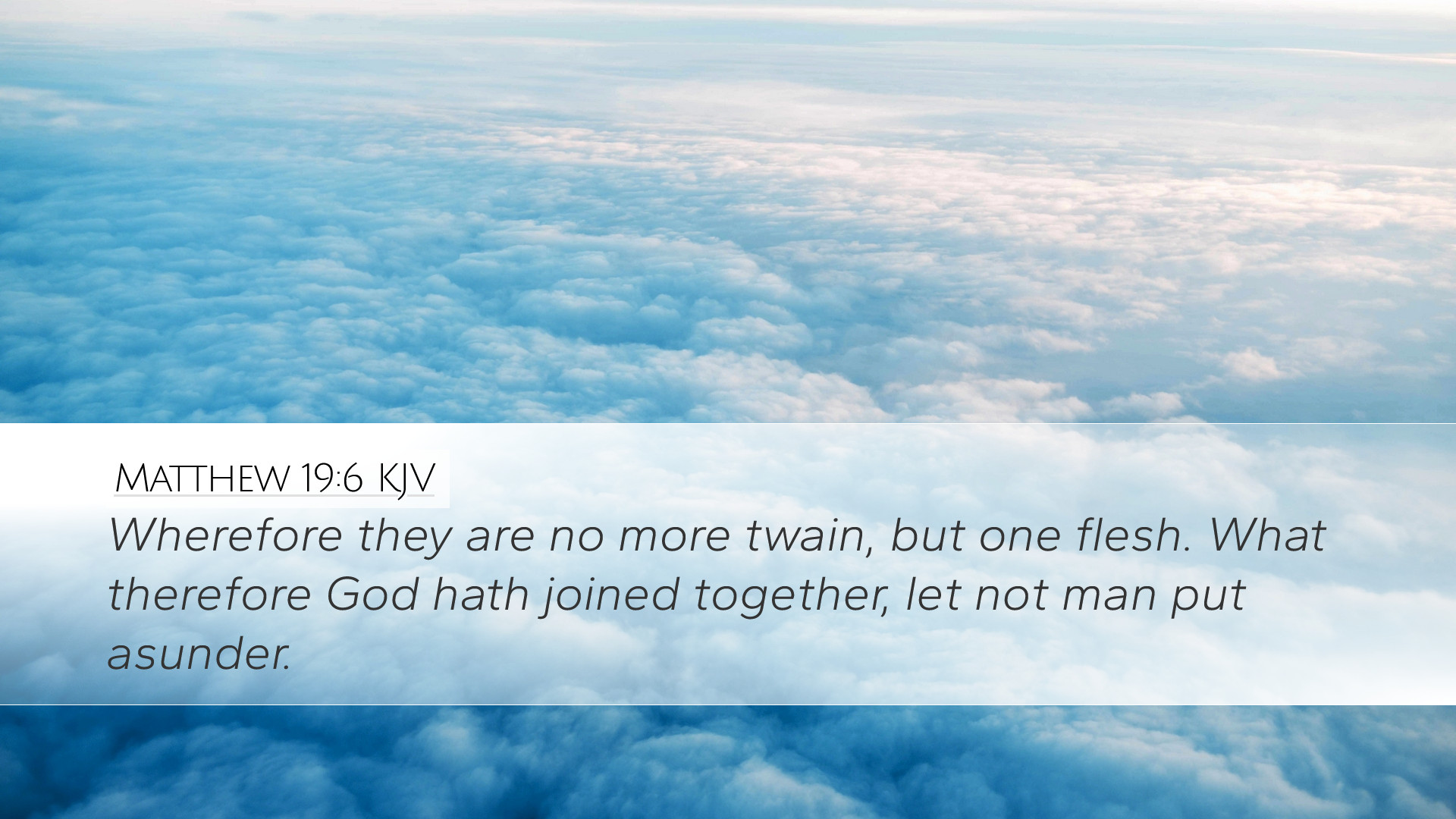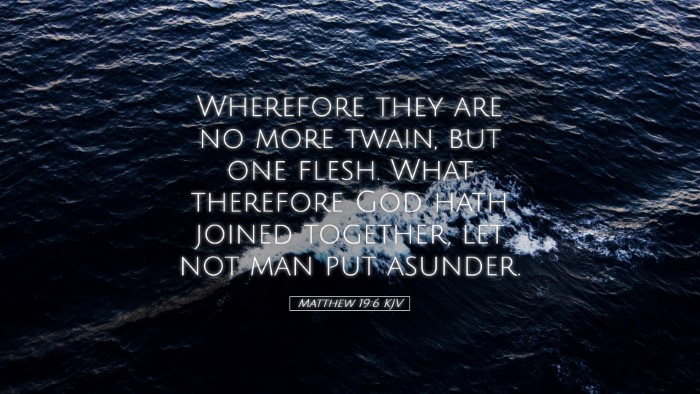Commentary on Matthew 19:6
Verse: "Wherefore they are no more twain, but one flesh. What therefore God hath joined together, let not man put asunder."
Introduction
Matthew 19:6 emerges from a larger discourse on the sanctity and permanence of marriage, where Jesus emphasizes the divine origin and institution of the marital bond. This commentary will delve into the theological implications of this verse, drawing on insights from esteemed public domain scholars such as Matthew Henry, Albert Barnes, and Adam Clarke.
Theological Insights
This verse succinctly captures the profound nature of marriage as ordained by God. It not only highlights the unity of a husband and wife but also sets forth the call for that union to remain intact amidst societal and relational challenges.
Divine Union
Matthew Henry elaborates that the phrase "one flesh" denotes a deep, intrinsic unity established by God. This oneness is both spiritual and physical, indicating that the marriage relationship transcends mere social contracts or personal arrangements. The unity portrayed here is meant to reflect the relationship between Christ and His Church, showcasing the depth of love and mutual commitment required in a marital bond.
God's Sovereign Design
Albert Barnes asserts that "what therefore God hath joined together" illustrates the sanctity inherent in God's creation of marriage. This language reinforces the concept that marriage is not merely a human institution but a divine decree. It urges both partners to see their union as a covenant initiated and blessed by God, where they must uphold their vows not only as societal obligations but as spiritual responsibilities.
Human Interference
Barnes further reflects on the admonition "let not man put asunder," emphasizing the need for commitment in the face of worldly temptations to dissolve marriages. He warns against the socio-cultural trends that undermine the stability of familial structures. The phrase serves both as a sacred command and a practical warning against the fragility that human interventions can introduce into what God has established.
Practical Implications
The implications of Matthew 19:6 extend beyond theological debate into practical aspects of pastoral care and personal relationships.
Marital Counseling
Adam Clarke emphasizes the importance of counseling couples with the truth of this verse. Pastors and counselors can use it as a foundation to teach couples about the seriousness of their commitments. It encourages couples to view their marriage not just as a social arrangement but as a divine calling, one that requires effort and dedication to thrive.
Celebrating Marriage
Engagement in educational efforts surrounding marriage can aid in celebrating the divine intent behind matrimony. Henry suggests that ceremonies should reflect this understanding, engaging communities in recognizing the holiness of marriage vows. By framing weddings and anniversaries as moments of worship, churches can reinforce the sacredness of the union.
Encouragement in Trials
In the face of marital challenges, Clarke notes that partners must be reminded of this verse as a source of comfort and strength. It serves as a good reminder that, despite adversities, God’s purpose for their union remains intact, encouraging spouses to rely on God’s strength to mend and protect their marriage.
Conclusion
Matthew 19:6 stands as a powerful testament to the divine nature of marriage. Drawing from the rich insights of Henry, Barnes, and Clarke, we see not only a description of the oneness in marriage but also a call to honor that unity in every circumstance. Pastors, students, and scholars alike are encouraged to delve deeper into these truths, elevating the discourse surrounding marriage to reflect the gravitas it deserves as defined by God.


